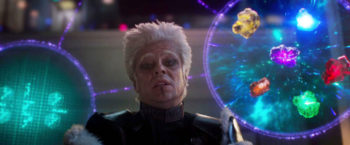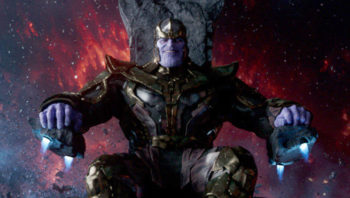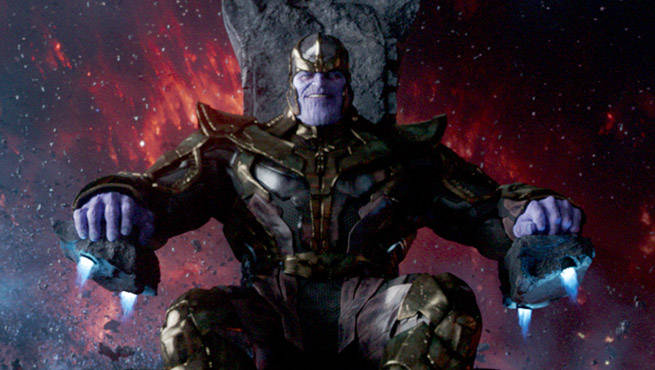The Metaphysics of Marvel’s Avengers: Infinity War
This article will talk about some of the basic ideas that underpin Marvel’s latest movie, Infinity War. As such it will talk about a few things that happened in the movie (where the “Infinity Stones” come from, what the role God or gods have in the movie and a bit more) but nothing that anyone would normally consider a spoiler. Though if you want to know absolutely nothing about this movie before seeing it, skip this blog post, because it will discuss the movie a little bit, though it will only mention a few characters by name (and the Infinity Stones) and beyond that will stick to very general story world concepts.
This is not a movie review.
For readers looking forward to my next post in the Car-Universe series, please note that I find this topic does relate very much to that series. In that series, I talk about why it makes more sense to see the universe as created than as “naturally occurring” (because the universe does not follow the principles of “naturalness” as defined in my last post, part 4 of the series). In Infinity War, we see a story world that actually assumes the universe created itself, an idea that’s ubiquitous in our culture. The reality that these ideas permeate even superhero stories, even these stories that seem to have no overarching, message about society to the degree that Rebecca Miller in a recent Speculative Faith article wondered if that’s why they are so popular–I find that very significant.
In other words, the metaphysics of Infinity War demonstrates why it’s important to talk about where the universe came from as I’ve been doing in my Car-Universe series. Because the notion of a self-generating universe permeates popular culture–it’s there, even in stories that clearly have no interest in being preachy about the nature of reality.

The Collector explains the Infinity Stones.
So, how do we see where Infinity War talks about the basic nature of reality? Simply in that it states that the universe formed in an explosion and six stones appeared. In Guardians of the Galaxy, the Collector (Benicio Del Toro’s character) explains in a bit more detail: “Before creation itself, there were six singularities. Then the universe exploded into existence, and the remains of these systems were forged into concentrated ingots…Infinity Stones.”
While this statement hints at something existing before the Big Bang, creation is clearly linked to the idea that “the universe exploded into existence.” Whatever existed prior is not given a special or supernatural origin. It’s simply pre-existent materials, not so unlike what Roger Penrose’s Cycles of Time suggested existed before our current universe came into being. (Note that this is how the movie portrays the Infinity Stones–a bit of internet research revealed to me that the original story in the Marvel comics in fact spoke of the Infinity Stones having a supernatural origin.)

Thanos with two Infinity Stones.
These very powerful “artifacts” (which in fact generate themselves in Infinity War, so are not really artifacts in the normal sense) that have so much power as to control the destiny of the entire universe, who controls them? Well, each has their own story, but the presumption of the story universe is that at one time no one controlled them. They were gathered up and collected by various beings over time–including at one point the “Asgardians” who North Germanic tribes and Scandinavians would worship as gods. And, pivotal to the plot of Infinity War, Thanos seeks to bring them all under his control.
So there is no overarching power in the universe. The universe just comes into being, just because, and those who increase in power do so over a process of time, not really by evolution (as it’s thought to operate) to be fair, but in a process that parallels it, in which by continuous effort beings make themselves more and more powerful. More and more godlike.
God, the Christian Deity, gets two references in Infinity War. One is a tongue-in-cheek statement by Chris Pratt’s Star Lord, in which when asked who he belongs to (meaning either Thanos or not), he quips words along the lines of: “What am I supposed to say–Jesus?” The other is the word “God” (or “oh God,” or something close to that), escaping the lips of Steve Rodgers at one point, a character the original Avengers movie implied is a Christian (when he said God does not look like Thor). In that character’s mouth, the exclamation was not a prayer, but it wasn’t quite cursing either. But that’s all the movie shows–a few references to the Divine, but no actual evidence of faith. (Though perhaps I should not complain–quite often science fiction only references the Deity as a swear word. Infinity War is respectful in comparison.)
Nobody in the movie prays. When in fact (I can assure you), in times of real crisis, at least some people pray. Of course, why should they pray? It’s the heroes who will either save or fail to save the universe. God has nothing to do with it–not even with the origin of the universe itself.

Thanos on the throne.
That’s the backdrop, the metaphysics of Infinity War. A self-generating universe. A universe in which no God sits on the throne of sovereign rule of all (because there is no single ruler of all), but which Thanos is striving to take for himself. A universe without prayer. Without (it seems) genuine faith.
Note that the movie is not at all preachy about this worldview. It shows no signs of directly trying to convert those of us who happen to believe in God into disbelief. You have to look for its metaphysics to find it. Some people, including friends of mine who believe in God and who love science fiction, may not have noticed this worldview is embedded in this story at all.
But I have been to countries that retain a different point of view–in Uganda and Guatemala from a Christian perspective, in Afghanistan and Djibouti from an Islamic one (and other nations), where its simply a matter of course to reference God in ordinary conversation. “Primero Dios” you will hear in Guatemala and many other places in Latin America when discussing the future–“God first,” by which they mean, “if God wills.” (Inshalla is how to say that in Arabic.)
I said “retain” above because this how most Americans used to think in our history. But the point of view that God is important and is in control of the world, even if mysteriously, while still retained by a minority of Americans (and not just Christians), is not how most Americans think anymore. The notion of a self-generating everything, in which God is completely insignificant, deeply permeates our culture. It’s everywhere. Even in a story like Infinity War, in fact.
Note that I found this movie entertaining. Entertainment value is not what I’m talking about here. Note that I also found the movie has moral elements embedded in the story–e.g. Thanos striving to take control of the universe does rather resemble the traditional Christian view of Lucifer–so I’m not saying this movie was fundamentally immoral.
I would say the film does reflect some moral ideas and I did think the film was also fun and interesting, but even though I found the movie entertaining, what I said above is about what the worldview of the movie happens to be. The idea of a self-generating universe that forms the background of this story is actually found in many other places–it’s ubiquitous (or nearly so), found especially (but not exclusively) in most varieties of science fiction.
And through movies made in the United States, we export these ideas of a Godless universe to other nations that are not yet culturally on board with this idea, whether any American intends to do that or not. To places like Guatemala and Uganda.
This is why this idea is worth talking about. So we can be aware of it. So we can contest the logical errors of such a view of the universe in the non-fiction we write and so we can compose speculative fiction which better reflects the realities that the universe shows God-given order, that at least some real people pray, and that certain problems go beyond the ability of our heroes to resolve.
For fans of the story, me offering a criticism of its worldview may come across as a bummer. That’s not my intent–again, I enjoyed the story and am not trying to stop anyone else from enjoying it. But I do hope readers will think about the topic of its worldview and such thoughts will affect how they evaluate other stories in the future.
So what are your thoughts on Infinity War and its metaphysics? Please share them below.












































Great article. Having seen the movie last week, I agree pretty much entirely. And the discussion is definitely worth having!
Great article as usual Travis. Largely, it all comes down to fact that the nihilisitic agenda is on a rampage and these types of scenarios creep into our consciousness. If we don’t have those such as yourself writing to thwart this wave of nilhilism, we’ll see nothing but the cosmic madness of Rick and Morty and along with the rise in suicides. I sound extreme but it’s nevertheless the case.
I did enjoy the movie but I was irritated with the “Jesus’ comment. I was like, why is it okay to mock? Other than that, the other problem I saw is that if Thanos is like the Devil, then, the other agenda–showing that Satan is simply misunderstood is also on the rise.
Lord Jesus come quick!
I haven’t seen the movie yet, but this is a great article Travis!
I am reminded of the reason I stopped reading very much new science fiction and fantasy (comics included), when I realized that the default (almost immutable) mindset in those genres is ‘everything can be true except Christianity.’ It is one of my disappointments in the Marvel cineverse that they couldn’t let Steve Rogers keep his faith and express it at least as much as he did in the earlier films; it was refreshing to see someone who at least seemed to be a believer without being a lunatic, pervert, or hypocrite, or even a designated clergyman.
Yes, I agree. Steve Rogers in this movie was not bent into a disillusioned Christian or a “born again” atheist. But his faith (as expressed in the first Avengers movie), has not been demonstrated openly in some time now. Unfortunately.
Good article, Travis. Yes, enjoying a film, being entertained, should not overshadow our awareness of the worldview being espoused. So glad you have reminded us of this.
Becky
I …”cringe” isn’t quite the word, but close enough… every time my favorite shows and movies throw that kind of worldview into the story.
“Six stones, the Infinity Stones, were made up of the foundational materials of the Universe…” would work just as well as what we got, if “preaching” in some respect was not intended.
Like you said, it is a very entertaining movie… a really, really good movie… but, they simply don’t share our worldview.
Yes, I did see the naturalistic metaphysics. I’ve just started reading your articles so I’m interested in reading more to see how writers do the opposite to show God’s creation. Very interesting.
Thank you for your interest.
My current focus has been more about what we see in the secular world and not how to counter it. Your comment has made me realize that I eventually need to follow up by talking about how Christian writers ought to do things differently.
Great article – well written. I completely agree this is a discussion we should all be involved with.
Thank you!